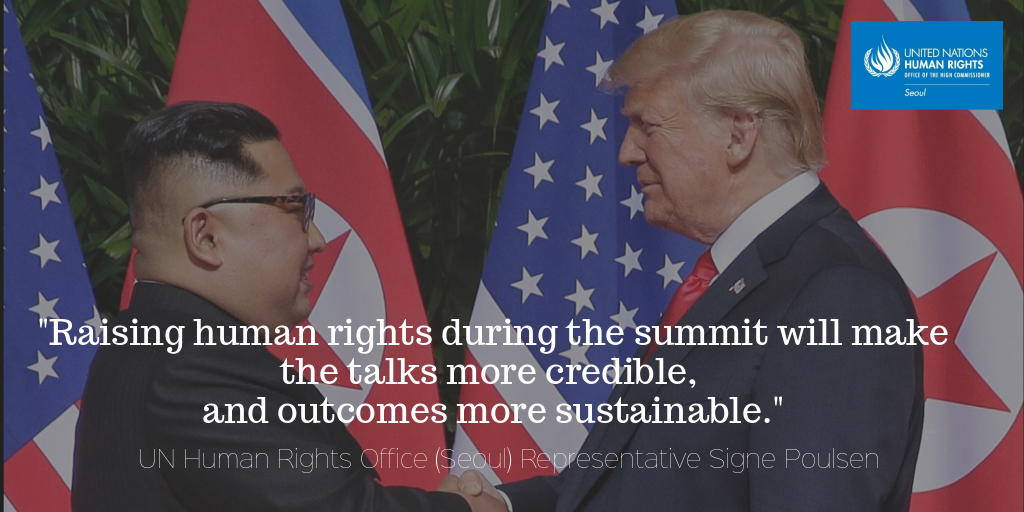
19/02/2019
Denuclearization is at the forefront of discussions, and for good reason. But at this critical juncture, it is also necessary that the leaders broaden the talks to include human rights improvement in North Korea. Doing so will facilitate concrete outcomes that benefit the population of North Korea, and help the talks reach the overall objective of lasting peace and security.
At their first summit last year, President Donald Trump showed Chairman Kim Jong Un a trailer produced for the occasion. “What if?” the trailer asks, amidst carefully crafted depictions of alternative outcomes contrasting conflict with prosperity. At the second summit, it is necessary to move beyond a dichotomous narrative of rockets and ski-resorts toward one which reflects the challenges facing the majority of the population, those who live outside the main cities, face food insecurity, and who lack access to information and other basic freedoms that would allow them to effectively take action to escape poverty.
The very serious human rights situation in North Korea has long been documented by the United Nations (UN) and civil society actors. Large parts of the population lack access to basic economic rights, including adequate nutrition, basic health care and water and sanitation. Expression of dissent is repressed, with threats of imprisonment in one of North Korea’s political prison camps or expulsion to remote areas. People lack access to information that is not sanctioned by the state, face restrictions of travel domestically and internationally, and discrimination based on social background remains a reality.
Globally, violations of human rights are among the root causes of insecurity and instability. In contexts where certain groups systematically discriminate against others to promote their own welfare or ideology, or where the law has become a means of oppression rather than protection, grievances may trigger social conflict. Moreover, in a context where people are not able to access or provide information freely, where there is no freedom of movement, and where decisions are made without transparency or accountability, verification of a process of denuclearization or dismantlement of facilities is likely to face significant challenges.
The dire state of North Korea’s economy, and failure to meet even the most basic economic rights of a significant part of the population is being fuelled by policies that expose those already living on the margins of society to threats and corruption by state actors. On the other hand, large construction projects, hailed as signs of progress, rely on mobilized labour, where workers carry out hard and in some cases dangerous manual labour, receiving minimal or no compensation, and in some cases under conditions that amount to forced labour. It is inconceivable that the international investment and tourism which Chairman Kim Jong Un hopes for can exist alongside such practices.
The summit presents an opportunity to push for adherence to international labour standards, for economic policies that allow all people equal opportunity, and social safety nets for the most vulnerable populations. It would also be opportune to request access to comprehensive and disaggregated data that would allow both the North Korean authorities and those in the international community that seek to assist, to ensure that they better identify and locate vulnerable populations. While sanctions at present prevent investment, such steps may facilitate economic development in the longer term.
International human rights mechanisms provide a framework through which these issues can be broached. North Korea has acceded to five human rights treaties. In recent years, it has presented reports on the rights of the child and the elimination of discrimination against women, and it has allowed a UN expert, the Special Rapporteur on the rights of persons living with disabilities, to visit the country. In May this year, it will undergo a Universal Periodic Review process, reporting and receiving recommendations on its human rights record from fellow UN member states. North Korea’s engagement with these international human rights mechanisms is encouraging. It indicates that the North Korean authorities are able and willing to engage, to some extent, with the international human rights system. In addition, there is a need for continued advocacy for access to the country by UN human rights experts and monitors – allowing such access is a concrete step North Korea can take to show its genuine commitment to moving the process forward.
Raising human rights during the summit will make the talks more credible, and outcomes more sustainable. This requires promotion of principles such as non-discrimination, transparency, and protection for those who need it most. It also requires redress for victims of grave violations, including those documented in the UN Commission of Inquiry report, to prevent the emergence of grievances and new cycles of conflict. This can, and should, be part of talks with North Korea. The United States and North Korea are at a crossroads, and should not allow this opportunity to be wasted.
The very serious human rights situation in North Korea has long been documented by the United Nations (UN) and civil society actors. Large parts of the population lack access to basic economic rights, including adequate nutrition, basic health care and water and sanitation. Expression of dissent is repressed, with threats of imprisonment in one of North Korea’s political prison camps or expulsion to remote areas. People lack access to information that is not sanctioned by the state, face restrictions of travel domestically and internationally, and discrimination based on social background remains a reality.
Globally, violations of human rights are among the root causes of insecurity and instability. In contexts where certain groups systematically discriminate against others to promote their own welfare or ideology, or where the law has become a means of oppression rather than protection, grievances may trigger social conflict. Moreover, in a context where people are not able to access or provide information freely, where there is no freedom of movement, and where decisions are made without transparency or accountability, verification of a process of denuclearization or dismantlement of facilities is likely to face significant challenges.
The dire state of North Korea’s economy, and failure to meet even the most basic economic rights of a significant part of the population is being fuelled by policies that expose those already living on the margins of society to threats and corruption by state actors. On the other hand, large construction projects, hailed as signs of progress, rely on mobilized labour, where workers carry out hard and in some cases dangerous manual labour, receiving minimal or no compensation, and in some cases under conditions that amount to forced labour. It is inconceivable that the international investment and tourism which Chairman Kim Jong Un hopes for can exist alongside such practices.
The summit presents an opportunity to push for adherence to international labour standards, for economic policies that allow all people equal opportunity, and social safety nets for the most vulnerable populations. It would also be opportune to request access to comprehensive and disaggregated data that would allow both the North Korean authorities and those in the international community that seek to assist, to ensure that they better identify and locate vulnerable populations. While sanctions at present prevent investment, such steps may facilitate economic development in the longer term.
International human rights mechanisms provide a framework through which these issues can be broached. North Korea has acceded to five human rights treaties. In recent years, it has presented reports on the rights of the child and the elimination of discrimination against women, and it has allowed a UN expert, the Special Rapporteur on the rights of persons living with disabilities, to visit the country. In May this year, it will undergo a Universal Periodic Review process, reporting and receiving recommendations on its human rights record from fellow UN member states. North Korea’s engagement with these international human rights mechanisms is encouraging. It indicates that the North Korean authorities are able and willing to engage, to some extent, with the international human rights system. In addition, there is a need for continued advocacy for access to the country by UN human rights experts and monitors – allowing such access is a concrete step North Korea can take to show its genuine commitment to moving the process forward.
Raising human rights during the summit will make the talks more credible, and outcomes more sustainable. This requires promotion of principles such as non-discrimination, transparency, and protection for those who need it most. It also requires redress for victims of grave violations, including those documented in the UN Commission of Inquiry report, to prevent the emergence of grievances and new cycles of conflict. This can, and should, be part of talks with North Korea. The United States and North Korea are at a crossroads, and should not allow this opportunity to be wasted.
.
ENDS
Ms. Signe Poulsen is Representative of the United Nations Office of the High Commissioner for Human Rights in Seoul.
